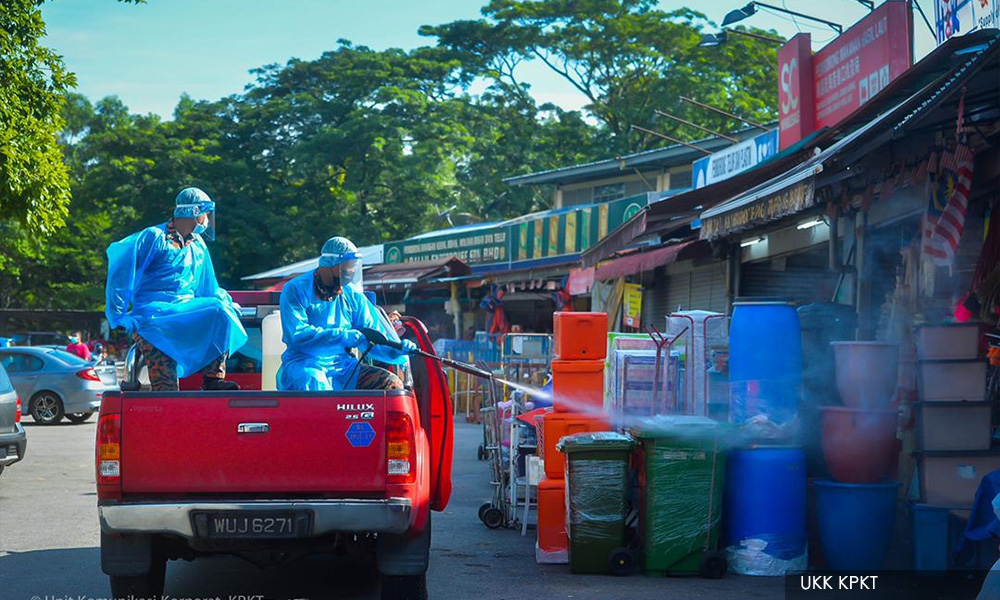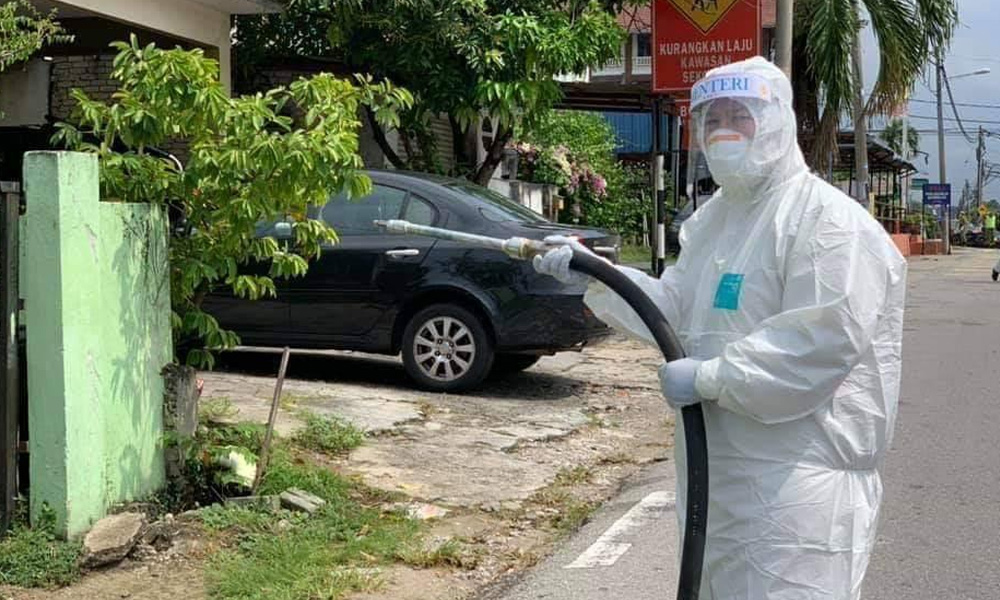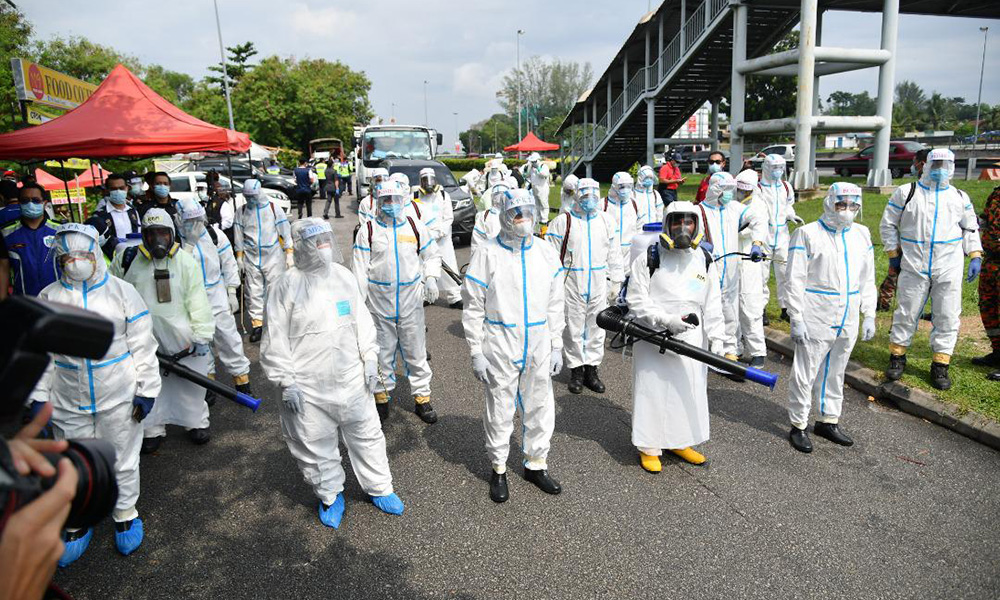Large-scale spraying of sanitisation chemicals undertaken by the Housing and Local Government Ministry has come under fire from experts who believe the exercise is unscientific and a waste of resources.
However, minister Zuraida Kamarudin, in a recent interview with Malaysiakini, said the process was not only cheap but she is convinced that the exercise meets its objective of killing germs.
"We're not looking for coronaviruses (to spray on)," said Zuraida. "We sanitise our hands (regularly). Why not sanitise a building? We are (sanitising) the pasar (market), inside and out. We sanitise the railings (and other public facilities)."
Asked if she was convinced that the cleaning agent used by her ministry definitely worked on the Covid-19 virus, Zuraida replied: "Indirectly, yes."
Public sanitisation, she explained, is just one component of the Covid-19 response as members of the public will also have to play their role by donning a mask, keeping their hands clean and maintaining a physical distance.
Since the start of the first movement control order (MCO) last year, Zuraida said her ministry has conducted over 13,000 sanitisation operations involving more than 500,000 buildings.
She explained that the cost of doing so was little as the chemicals used were donated.
"The cost is minimal because we received 1,000 litres of chemicals a long time ago, sponsored by a medical company. We still have some left with us because we mixed it with water, we don't use much.
"In terms of chemicals, there is zero cost to us. Moreover, we have the needed equipment, it doesn't cost us anything either," Zuraida said.
The public sanitisation work is often carried out by the Fire and Rescue Department, which is overseen by her ministry.
In May, Zuraida drew flak from healthcare experts, including infectious disease expert Dr Adeeba Kamarulzaman who said the large-scale two-day disinfection exercise at 284 locations nationwide was not based on the latest scientific findings and is only a waste of resources if not done in a targeted manner.
Public health experts said the sanitisation works contravened the guidelines issued by the World Health Organization and CDC-Atlanta (United States Center for Infectious Diseases).
The CDC said spraying cleaning products or disinfectants in outdoor areas - such as on sidewalks, roads, or groundcover - is not necessary, effective nor recommended.
Zuraida said critics should appreciate the work put in by the Fire and Rescue Department and she went on to accuse some critics of being unprofessional.
"They could have done it in a constructive way, they should advise instead of condemning. This is not a professional attitude," she said.
Zuraida also announced that the National Council for Local Government would standardise a sanitisation programme that will be implemented nationwide.
"We are going to issue guidelines for shops (operators) to conduct regular sanitisation works, and this will be included in the star rating system," she added.
She said among the proposals was for building and shop owners to carry out the sanitisation work every six months.
Her ministry was also working on the Community Vaccine Mobilisation (Movak) programme, to ensure vaccine coverage for 500,000 hawkers and small traders.
Movak, which is not part of the National Covid-19 Immunisation Programme (NIP), was implemented after the government considered the suitability of the groups for vaccination priority as they always deal with the people through business activities.
Zuraida believes that this programme would benefit 350,000 properly registered hawkers and some 150,000 un-licensed hawkers, who can register themselves with the local authority for a six-month temporary licence.
She said migrant workers who are employed by hawkers and traders are also entitled to receiving the vaccination under the programme.
She said Movak mainly concentrated in five states and federal territories, namely, Selangor, Penang, Pahang, Johor and Kuala Lumpur.
"We want to ensure that they are safe to resume business when we enter Phase 2 or Phase 3 of the National Recovery Plan," she said.
Unlike other on-site Covid-19 vaccination centres and the Public-Private Partnership Industrial Covid-19 Immunisation Programme (Pikas), she said no charge would be imposed on the hawkers and small traders who signed up for Movak. - Mkini







No comments:
Post a Comment
Note: Only a member of this blog may post a comment.